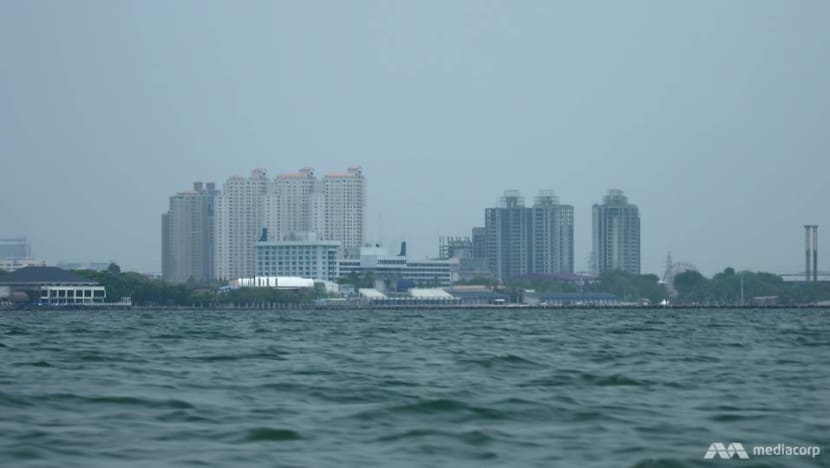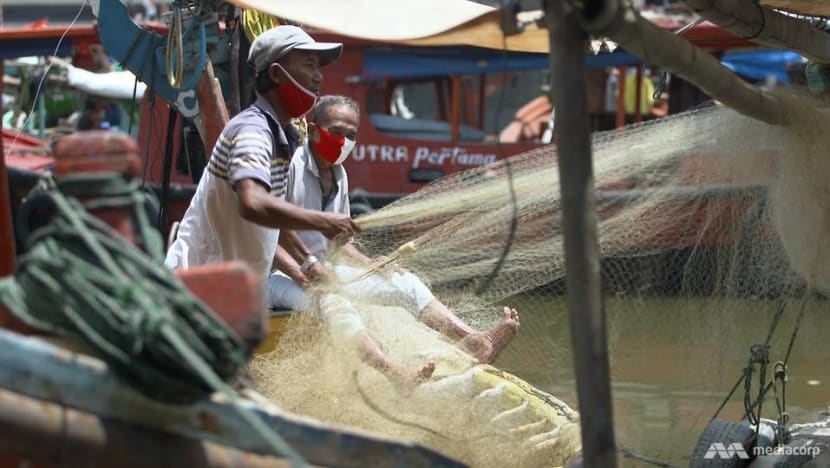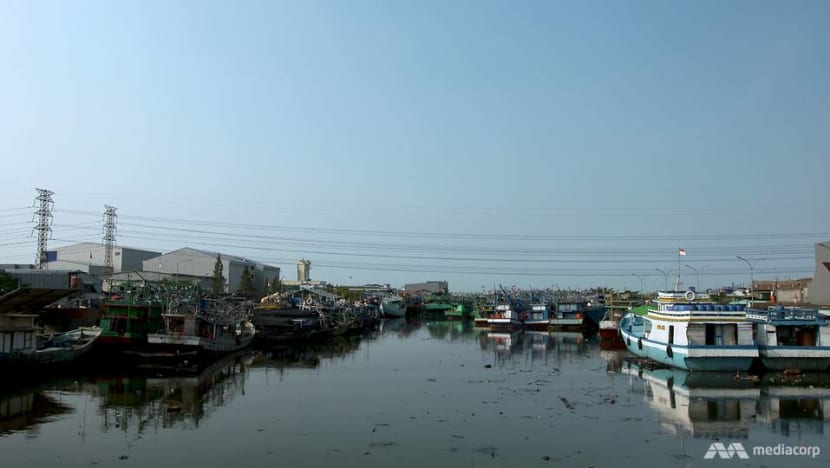High paracetamol concentration in Jakarta Bay sparks concern over impact on people and environment

View of Ancol in North Jakarta. (Image: Lufty Ferdiansyah)
JAKARTA: A recent study showing that the waters of Jakarta Bay contain high levels of paracetamol has sparked concern over the impacts on people and marine life.
The authorities in the meantime, are investigating the matter and have vowed to take firm action against the possible polluters.
Researchers from Indonesia’s National Research and Innovation Agency (BRIN) and the United Kingdom’s University of Brighton took seawater samples between 2017 and 2018 in four locations at Jakarta Bay. Their study found that there were 610 nanograms per litre (ng/l) of paracetamol in Angke and 420 ng/l in Ancol.
Angke is a highly populated area in Jakarta with inadequate sanitation, while Ancol is north of the city where the mouth of the main Ciliwung river is situated.
According to the study’s authors, research elsewhere in Brazil and Portugal has found paracetamol readings of 34.6 ng/l and at least 51.2 ng/l respectively.
Professor Zainal Arifin, who is a member of the research team from BRIN, said during a webinar on Oct 5 that “long-term exposure with low or high concentrations of paracetamol causes impaired reproductive function in shellfish,” in a laboratory setting.
The study was the first to report the presence of paracetamol in Indonesia's coastal waters. It was published in the scientific journal Marine Pollution Bulletin in August.
While the study did not zoom in on the source of the paracetamol, the researchers believe that it may have originated from pharmaceutical companies, households and even hospital waste.
Following the release of the study, environmentalists also highlighted that the results show the country’s waste management is insufficient and needs improvement.
However, further studies are needed to come to a firm conclusion and permanent solution, said those interviewed by CNA.
Related:
IMPACT ON HEALTH AND MARINE LIFE
Professor Etty Riani, a lecturer on aquatic resources management with agricultural university IPB in Bogor posited that the waters in Jakarta Bay may have been contaminated by human waste, pharmaceutical companies, or improper treatment of wastewater.
She noted that paracetamol is commonly consumed when people feel headaches, fever or pain. This is because it brings quick relief and is easily available in small shops without prescriptions.
“Even in villages, it is easy to get hold of paracetamol, just like buying candy,” she said.
“Actually, when prescribed by doctors, paracetamol is safe because it can be very quickly absorbed just like food and 90 per cent to 100 per cent is passed out through urine.”
However, she said that when consumed in high doses, it can be deadly.
With a paracetamol concentration level of 600 ng/l, she believed that it would not be deadly for the aquatic ecosystem.
However, if the concentration is sustained at this level, there could be secondary impacts on microorganisms, she said.
Microorganisms typically act as decomposers and are responsible for the recycling of nutrients.
She urged people against consuming paracetamol freely in a bid to seek instant relief when they are unwell.
Mr Tubagus Soleh Ahmadi, the executive director of environmental non-governmental organisation (NGO) Walhi Jakarta said that in addition to possible ecological impacts, livelihoods could also be at risk.
“This will also burden the coastal communities and fishermen whose living space is very dependent on the sustainability of the Jakarta Bay,” he said.

Mr Ahmadi noted that it could become harder for fishermen to catch fish.
“This adds to the burden of production costs, not to mention when they have to deal with bad weather.”
Meanwhile, Greenpeace Indonesia ocean campaigner Arifsyah Nasution suggested that the source of the paracetamol could be from industrial waste disposal, especially by the pharmaceutical companies. Hospital waste as well as domestic consumption are other possible sources of the pollution, he said.
He noted that the study indicates that waste management in the megacity is still poor because law enforcement and monitoring are weak, due to a lack of political will.
“The concentration of paracetamol detected can also indicate that the water circulation in several locations in the Jakarta Bay is impeded due to various reclamation projects that have been running for years in the coastal areas of Jakarta,” said Mr Nasution.
He said that the city’s waste management facilities should also be improved, while bearing in mind the budgetary constraints.
Hence, he called on the government to conduct further studies to identify the source of the problem and determine the necessary steps needed.

PHARMACEUTICAL COMPANIES TO BE SUMMONED
The authorities have pledged to take firm action.
Jakarta governor's special envoy on climate change Irvan Pulungan told CNA that following the publication of the study, the city government took water samples in early October. The laboratory results will be known in a couple of weeks.
While investigations are taking place, the municipal authorities are aiming to improve wastewater management. But this would take time, he added.
Among other things, it aims to tighten the control of medical waste, especially expired drugs in health clinics, said Mr Pulungan.
“Expired drugs are hazardous and toxic materials. The management already exists but we will evaluate further,” he said.
He also said that the government will work with the researchers to conduct training for the city’s environmental inspectors on research techniques.
Related:
Mdm Rosa Vivien Ratnawati, the director-general of waste and hazardous and toxic materials management under the environment and forestry ministry said that they would check how expired drugs are managed by pharmaceutical companies in Jakarta. There are about 27 pharmaceutical companies in the city.
“Those companies will be summoned and checked on how they manage their waste and used drugs that have expired. Those drugs are hazardous and toxic waste so their management is special,” she said during the webinar on Oct 5.
She also said the ministry would work together with the Jakarta government as well as the researchers to study environmental contamination brought about by paracetamol, plastic and antibiotics.














